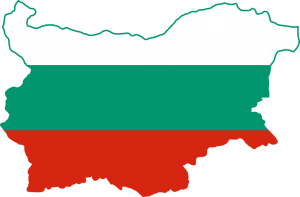By Sarah-Claire Jordan
 Bulgarian, the official language of Bulgaria, is spoken in a few other countries besides its namesake. Turkey, Greece, Serbia, and Albania are just a few of the countries where it is spoken. It is an Indo-European language, part of the Slavic language family, specifically the Southern branch. Macedonian is the language that most closely resembles Bulgarian, and together they make up the East South Slavic languages.
Bulgarian, the official language of Bulgaria, is spoken in a few other countries besides its namesake. Turkey, Greece, Serbia, and Albania are just a few of the countries where it is spoken. It is an Indo-European language, part of the Slavic language family, specifically the Southern branch. Macedonian is the language that most closely resembles Bulgarian, and together they make up the East South Slavic languages.
Bulgaria joined the European Union in 2007, and so Bulgarian became one of the official European Union languages. Here are a few more things everyone should know about Bulgarian:
1. There are two distinct groups of Bulgarian dialects
The two main groups of Bulgarian dialects are based on a split that happened in the Middle Ages. A particular vowel, known as the Common Slavic yat, was pronounced differently, which led to the pronunciation differences we see now in Eastern and Western Bulgarian dialects. The Western dialects are known as “hard speech” sometimes, and have a particular pronunciation of the yat vowel, which is as an “e”. The Eastern dialects are sometimes referred to as “soft speech” and the old yat vowel is sometimes pronounced as an “e” and sometimes as a “ya” sound, depending on whether or not the syllable is stressed and the following syllable has an “i” or “e” sound.
2. Bulgarian verbs can have a huge number of forms
There are a number of things that influence the form a Bulgarian form takes on. As with most languages, certain things such as person, number, and tense, but there are a few other factors that not all languages use as markers for changing a verb’s form. These are aspect, mood, voice, and gender. With all of these factors put together, one verb could have up to 3,000 different forms. In terms of the moods that can influence the form of a verb in Bulgarian, there is one mood that many languages do not use: the inferential. This mood refers to events that have not been witnessed, and is also used in Turkish and a handful of other languages.
3. Native words make up most of the lexicon
Bulgarian may be the Slavic language that has stayed truest to the proto-Slavic language that they all originated from. This is shown in the fact that around 70%, maybe even 75%, of the Bulgarian lexicon is made up of words that can be directly traced back to Old and Middle Bulgarian and then to proto-Slavic. This means that only one quarter or so of the words that make up the Bulgarian language are loanwords, mostly from French and Russian, and some from English and Turkish.
4. Bulgarian once used an ancient Slavic alphabet
Though now written using the Cyrillic script, the Bulgarian empire began using a different script known as the Glagolitic alphabet in AD 886. The Glagolitic alphabet is the oldest Slavic alphabet that linguists know of so far, and was used to write in Old Slavic. It was created by a Byzantine monk known as Saint Cyril who was ordered by the Byzantine emperor to try to convert the Slavs to Christianity.
For an overview of our translation expertise, visit our medical and life science translation page.



